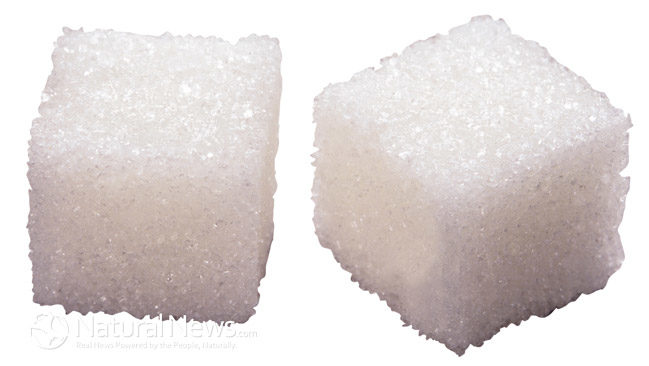Everywhere we go, we are subjected to sugar. If it’s not hidden inside our favourite foods, it’s lurking in vending machines and drinks cabinets. It has been proven that obesity is a problem in many countries, including the UK. According to statistics, one-third of all children is overweight risking health problems such as heart disease and diabetes. But what is it that makes sugar so toxic to our health?
What’s in Sugar?
Most often, when we talk about sugar, we are referring to a mixture of glucose and fructose, both simple sugars that are contained in various amounts in different foods. Dextrose, glucose and fructose are all examples of monosaccharides or simple sugars. Maltitol, mannitol, glycerol and sorbitol are sweeteners that are becoming increasingly popular. They are absorbed by the small intestine and provide fewer calories than sugar but can cause bloating and diarrhea.
Splenda is a form of sucralose and is NOT a sugar. It is a chlorinated artificial sweetener in line with aspartame and saccharin, with detrimental health effects. Another product that is deceptively harmful is agave syrup, falsely advertised as naturally derived from the agave plant, but usually 80 percent fructose.
What damage does sugar do?
Sugar is notoriously bad for our livers. Fructose naturally goes to our livers and provides glycogen to our bodies after excessive exercise, however if our livers are already full of glycogen (if we are sedentary) the fructose will be turned into fat that can build up over time, causing Non-Alcoholic Fatty Liver Disease. Bad cholesterol can also be increased by a high intake of sugar as can weight gain, cravings and sleep trouble.
What are the examples of safe sugars?
Honey is completely natural in its raw form and has many health benefits when used in moderation, including as many antioxidants as spinach. Stevia is another example of a highly sweet herb derived from the leaf of the South American stevia plant, which is completely safe.
Naturally contained sugars in fruit and vegetables are balanced by the fibre, vitamins, enzymes and other properties of the fruit/vegetable which slow sugar digestion and help the body deal with it more easily. Added sugar, on the other hand, provides none of these benefits.
Although it is almost impossible to avoid sugar in today’s modern world, it is important to bring our children up with a good nutritional foundation with an understanding of the detrimental effects of sugar. Teaching them to choose whole foods as much as possible and avoid any processed foods (especially those containing sugar) will help them make healthy choices in later life.
My Suggestions for Healthy Kids’ Snacks:
Fruit, sugar-free cereal, whole grain snacks, low salt rice crackers, humus and cottage cheese with vegetable sticks, nuts, seeds and yogurts.
Author Bio:
Leyla Watkins is a freelance writer, blogger and enthusiast. Follow her on Facebook, on her Twitter account @lovefromleyla, on Pinterest and on Instagram. You can also check her write-ups on LoveFromLeyla.com.





